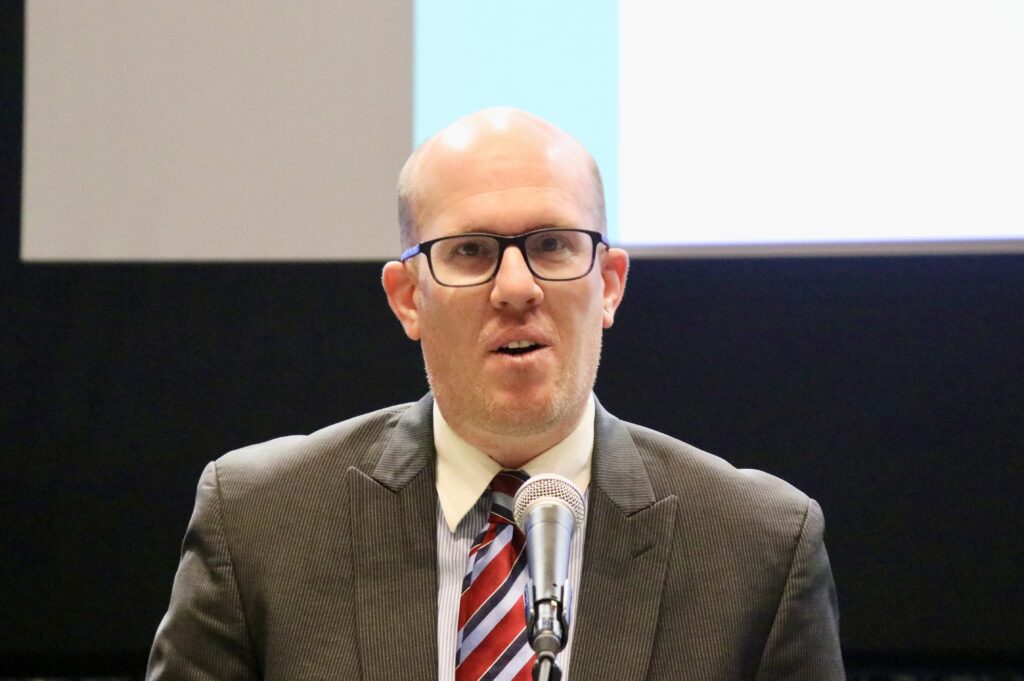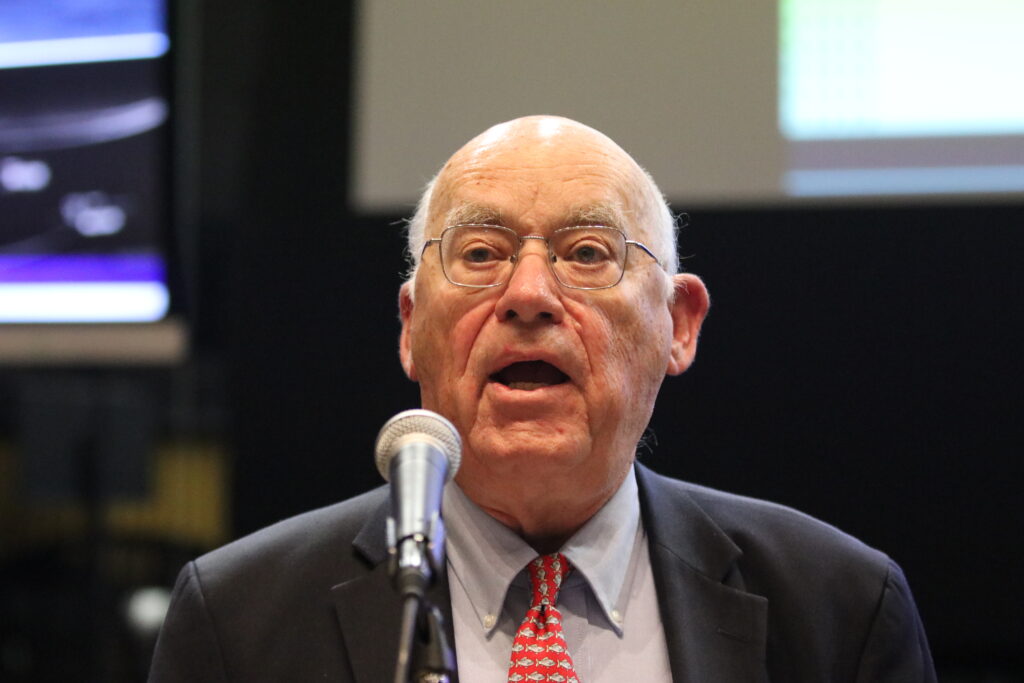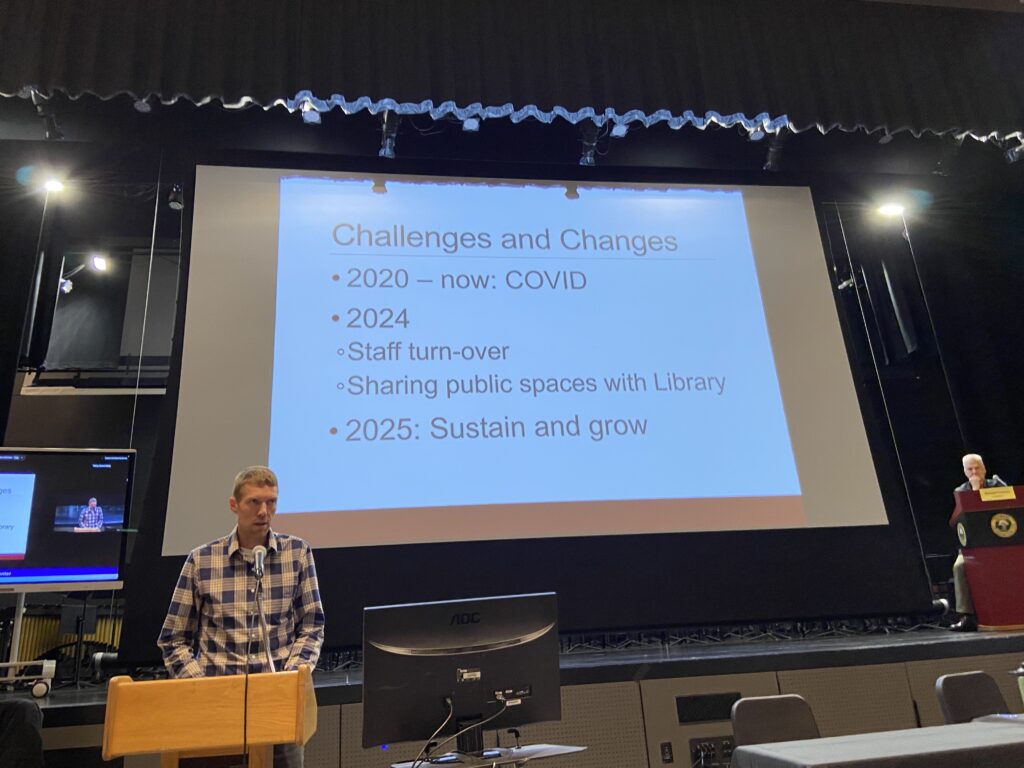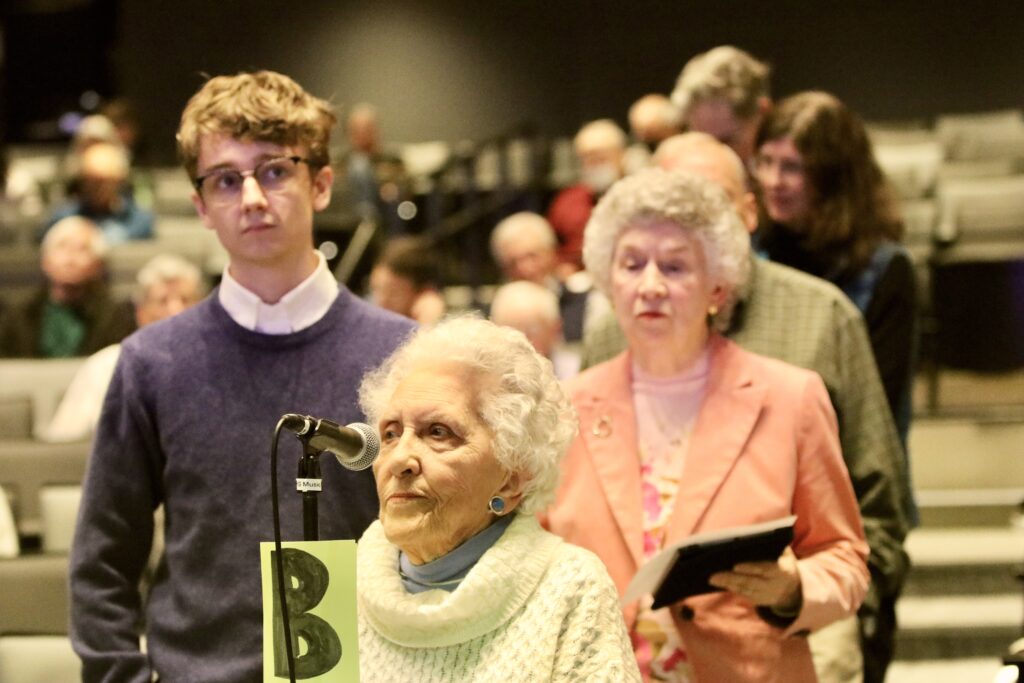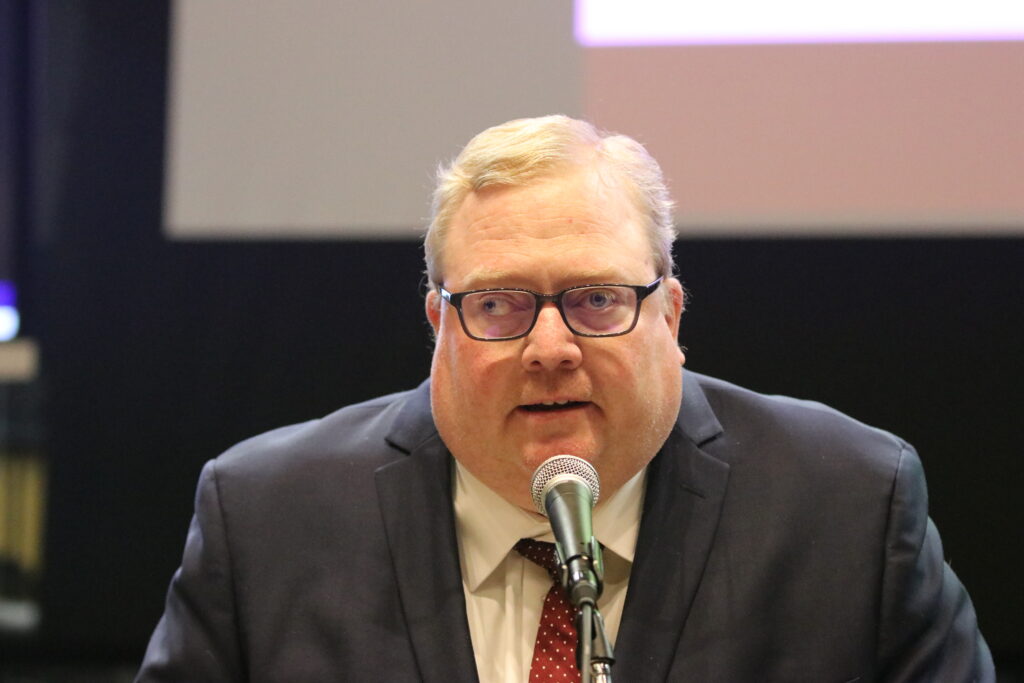Photo: “Chicago” performed by the Belmont High School Performing Arts Company in 2017.
There’s a saying among show business folks: Despite the circumstances, “The show must go on!”
And that adage is being used by the Belmont School Department to allow exclusive use of the Belmont High School theater/auditorium for nearly a month in late winter for rehearsals and performances of the highly anticipated annual high school Spring musical.
That demand by the schools supporting its arts program is forcing the March 4 Special Town Meeting to move out of its “home” at the high school auditorium into a temporary spot at the Chenery Upper Elementary School’s auditorium.
This change of venue did not go over too well with those running the Special Town Meeting that will vote to approve proposed zoning overlay districts for Belmont Center and along Concord Avenue.
“The high school is the home of Town Meeting and I’m really unhappy with how this is playing out, yet again,” said the Select Board’s Elizabeth Dionne, who referred to a past promise in 2024 for the space to be used for a Town Meeting that was pulled back. (That refusal was dropped after Select Board resistance.)
“It feels like we keep getting pushback that is not appropriate,” said Dionne.
“I’m shocked and really unhappy,” said Taylor Yates, Select Board vice chair. “The Select Board has been extremely supportive of the schools and school committee. And we made clear this is one of our top priorities.”
Town Administrator Patrice Garvin was particularly disappointed at the resistance from the schools on sharing the space.
“We made a request four months ago, and [the school department] is unable to honor that because of rehearsals? Not performances, rehearsals,” Garvin said pointedly.
The Special’s date conflicts with the final week of rehearsals for this year’s Belmont High School Performing Arts Company musical (which has yet to be announced on the BHS PAC website). The musical is the highlight of the theater/arts year, with literally up to 100 students involved as actors, stage management, making costumes, and the backstage crew involved to create the performances. [The performances are scheduled March 12 to 14). The stage will be filled with props and large scenery, and the audio and light systems will be appropriated by the arts department.
The musicians will be located in the orchestra “pit” which requires the removal of panels in front of the stage, which, during Town Meeting, is where the Town Moderator, Select Board, town administrative staff and Town Clerk’s office are positioned.
“It just turns out that the … auditorium is very popular this time of year,” said Board Chair Matt Taylor, noting it would take a day to return the panels to cover the pit and scenery would likely interfere with the screen used for presentations and to report vote tallies.
Because it has never held a hybrid meeting at the location, Belmont Chief Innovation Officer Chris McClure made a Rumsfeld–esque observation that “there’s a lot of unknown unknowns” by holding a meeting at the Chenery. He said that the department is “just getting used to the intricacies of the [high school] auditorium.
There are two glaring limitations with holding the “Special’ at the CUE, according to McClure. First, the interior of the school is a “dead” zone for cell service, forcing the meeting to “totally rely on Wi-Fi for connection.” Yet both the town’s IT department and Belmont Media Center, the meeting’s broadcast outlet, were optimistic each could find a workaround to the challenges.
“Yeah, we’ll make it work,” said McClure. “We got adequate time to do some practice there,” but also cautioned that the meeting “would probably expect a few surprises.”
If additional equipment is required “for that ability to hold Town Meeting” at the CUE, the increased cost should be shouldered by the School Department, said Garvin. McClure said long-term plans are underway to place additional antennas in town-owned buildings and schools due to limited coverage, but “[o]bviously that timetable doesn’t line up with this.”
But McClure pointed out, “I would just advise against oversolving the problem and making it too complicated” looking to “just shore up the WiFi and maybe provide some extra tech support.”
And if all else fails or the solution is costly to install, McClure suggested the possibility of a return to roll call voting—votes by volunteer “tabulators” who count raised hands on each amendment and article – for this one meeting.
The second limitation, according to Town Moderator Mike Crowley, who attended Monday’s meeting, is the lack of a separate location for meeting members who, whether for health concerns or personal preference, require extra personal space. At the high school, those residents are located in the balcony, where the CUE’s theater is a single-floor design.
But at the end of the discussion, the Select Board reluctantly approved the Special Town Meeting at the CUE, with either a single or two nights to resolve the zoning changes proposed by the Planning Board.
Even after the vote, the Select Board remained disappointed with the forced change imposed on the town.
“I am surprised at the very small number of people that can dictate when and where Town Meeting happens,” said Yates.
